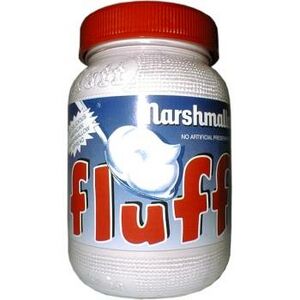Fluff

Fluff is gamer slang for the lore, histories and colourful descriptions used for a game or game setting that have no mechanical effect on the game's rules. It is the opposite of Crunch.
Powergamers will ignore fluff to focus on the crunch of target numbers, dice pools and maximum efficiency. Their counterparts (fluffgamers? fluffers?) will design characters or units based solely on the background stories behind choices, despite how useless or even contradictory these choices can be once the game starts. Fluffy characters are interesting, fluffy armies are intriguing, fluffy mecha are intricate... and all of them will go down like a senior citizen with a wet-cardboard walker the first time they get involved in a conflict.
So, who cares about fluff? Stop for a minute, and look around you. Do you have ANY IDEA how many articles on this wiki are dedicated just to talking about Warhammer and WH40K fluff? DO YOU? It makes a grown man weep.
Sometimes fluff will experience an apotheosis, and ascend into crunchhood. The elegan/tg/entlemen have a knack for doing this. The textbook example would be the Angry Marines, who started as a single funny picture, turned into a running gag, and then by the magic of "/tg/ gets shit done," turned into a full Space Marines chapter with a published codex.
(Fluffers?) take their fluff seriously, even though it has no effect on gameplay what-so-ever. If it isn't grimdark enough, or noblebright enough, or manly enough,or weeaboo enough, or subtle enough, they throw bitchfits. You can find them scurrying up and down official and unofficial forums like roaches, gnawing on the ankles of wiki articles, desperately trying to find an outlet for their rage. The air will reek of Skub.
Fluff can make or break a faction, or even an entire game. A sub-optimal force of units in a skirmish game can rake in a huge fanbase if the fluff is appealing; on the other hand, an efficient and effective army force is shunned because of the horrible, Mary Sue saturated fluff of it's faction history. (Insert your own Matt Ward reference here, it hurts too much to write about it.)
"Narrative" game systems try to get the best of both worlds by turning character background and personality into mechanical features that can be called upon during conflict. The cleanest example of this would be the FATE system, where characters write down 2-10 "aspects" (very specific descriptions or catchphrases) for events in the character's background history. Even locations can have "aspects" from the history of events at that place. These "aspects" can be invoked during conflict for either a bonus to a die roll or to get a re-roll. This makes powergamers get that twitch in their left eyes because it feels like making stats up on-the-fly during character creation.
Examples of Fluff Overwhelming Mechanics
- In Games Workshop's official fluff for Warhammer 40,000, the Space Marines fluff describes them as extremely hardcore superwarriors who regularly achieve kill-to-death ratios somewhere in the order of several thousand to one. When you actually play the game, the crunch of their statistics, are not nearly as good as the fluff would suggest, else a balanced game would require one Space Marine mini to three crates of opponent army minis.
- Tieflings in D&D4e have a history of a culture that long ago made pacts with devils, that have since expired and have no mechanical effect on the game. There are no rules that discourages good nor lawful good behaviour, and they gain no bonuses for being badguys, and yet players that use tiefling characters will always take the roles of sinister jerks. "But I played a tiefling that was all noble and selfless --" yeah, but you thought that made her a special unique snowflake, didn't you?